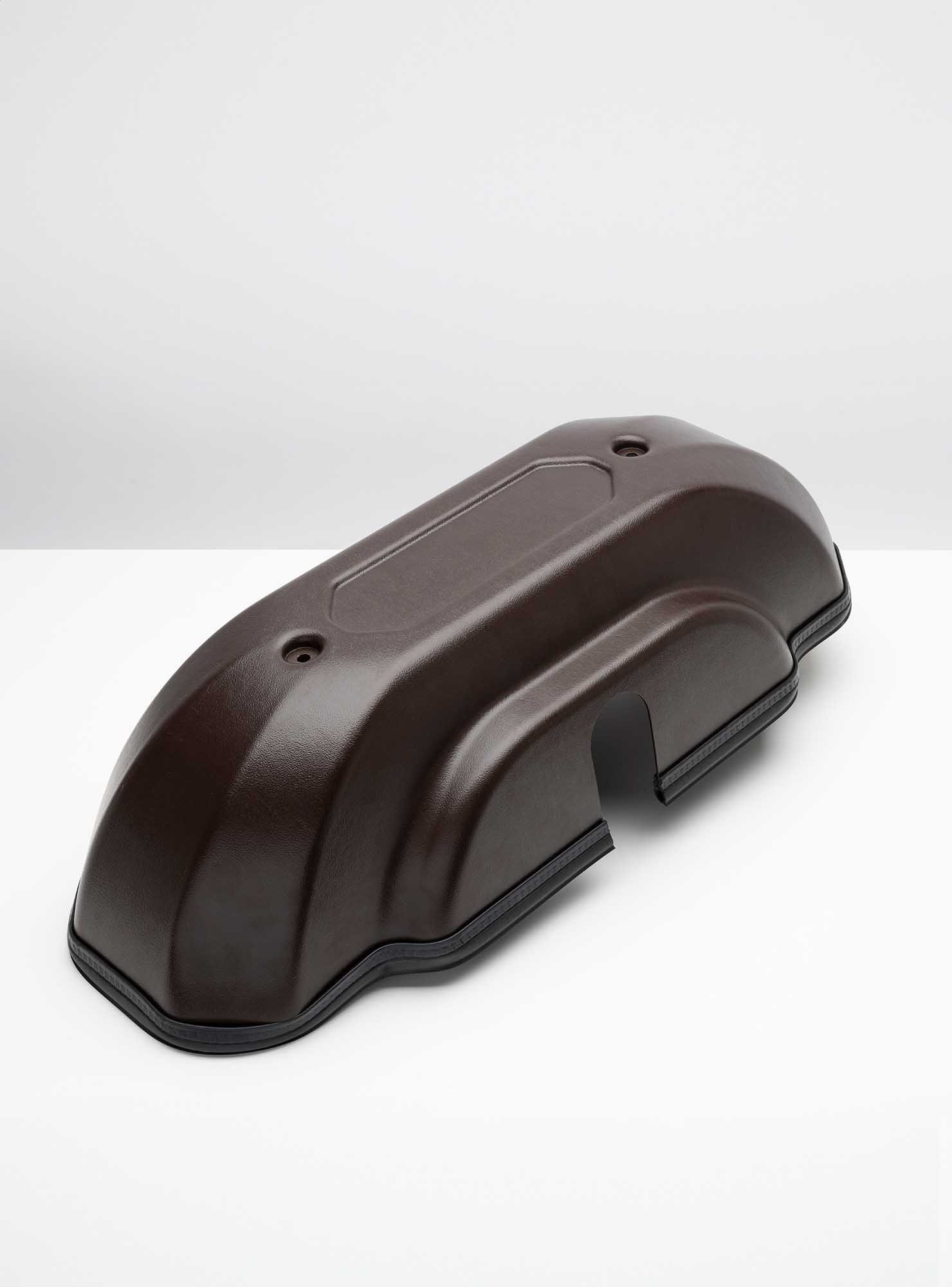Lignin Industries and Scania on stage at PIAE in Mannheim
PIAE – International professional congress for plastics in cars – is the world’s largest congress for plastics experts in the automotive industry. On stage at 2025 PIAE in Mannheim Christopher Carrick, founder and CTO of Lignin Industries, unveiled two groundbreaking research projects, each of which stand to have major positive impacts on the global automotive industry. Carrick's speech was titled ”Lignin - Next generation renewable resource for sustainable plastics” and was delivered with Lars Jerpdal of Scania.
The Bioform project – biobased materials for vacuum-formed products in vehicles
Vacuum formed ABS demonstrator with Renol® content.
The first project presented (“Bioform”) set out to create vacuum-formable materials, replacing fossil-based plastics with bio-based alternatives. This was done by incorporating high bio-based content into ABS. Results of the project indicate that the biomaterials developed in the study present a significant breakthrough for the automotive sector, offering a sustainable alternative to conventional fossil-based materials. Project stakeholders include Vinnova (innovation agency of the Swedish government), Scania, AutoForm, KTH Royal Institute of Technology, and Lignin Industries.
Key findings include: Project success in replacing up to 44% of plastic content with bio-based fillers, achieving a 40% reduction in carbon footprint. The bio-based materials have enhanced fire retardancy, mechanical performance, and environmental benefits, proving highly suitable for various automotive applications, including interior trims, exterior parts, dashboards, door panels, and roof boxes.
Lignin-based plastics demonstrated good processability for both extrusion and vacuum forming.
The study concluded that the reduced carbon footprint profile of bio-based materials, such as lignin, positions them as a viable solution in tackling the automotive industry’s sustainability goals - particularly since there is a renewed push towards reducing reliance on fossil-based materials and reducing greenhouse gas emissions by 2050.
Ku-Fizz loves Renol®: reduced CO2 emissions from both material, process and usage
The second project presented was around the Ku-Fizz™ process: a microcellular injection molding technology which creates lightweight automotive parts in an economical manner, originated by Volkswagen Group.
Samples in PP produced with Ku-Fizz technique and Renol® as nucleating agent.
Weight reduction of 10% compared to unfilled injection moulded PP. Cycle time reduction of 30% compared to traditional injection moulding. Reduction of clamping force of 70% compared to traditional injection moulding, thus a smaller injection moulding machine is necessary. Renol® can be reprocessed repeatedly without losing its properties, whereas glass fibers deteriorate after the first cycle. Renol® gives isotropic properties which makes it easier to achieve flat surfaces.
- Being a bio-based material, Renol® has a lower carbon footprint than fossil-based plastics.
- Furthermore, Renol® enables weight reduction when incorporated within the Ku-Fizz™ technique meaning less material is needed.
- The decreased weight also means lower CO2 emissions during usage phase (Scope 3) for the automotive industry.




